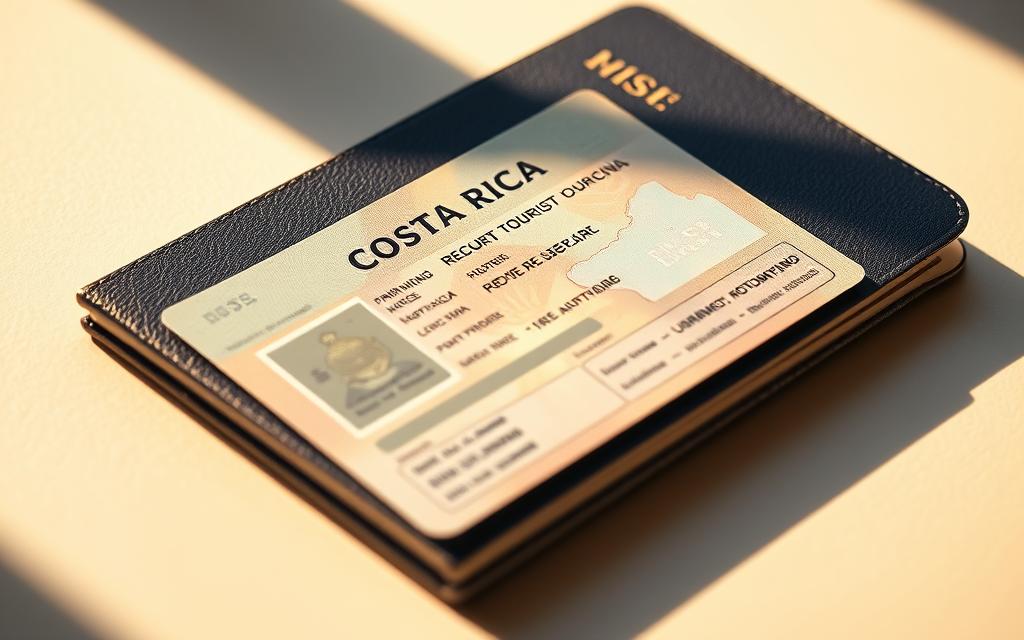Costa Rica Residency: How Long Can You Stay Outside?

Did you know that over 50,000 foreigners have obtained residency in Costa Rica in the last decade? This tropical paradise is not just a vacation destination but a place many call home. With its stunning natural beauty, mild climate, and welcoming culture, it’s no wonder people are drawn to this Central American gem.
Residency in Costa Rica offers a superior quality of life and access to diverse options like rentista, investment, and permanent pathways. Whether you’re seeking a temporary or permanent stay, understanding the legal framework is crucial to avoid complications. This article provides essential information about the flexibility of time spent outside the country while maintaining your status.
From breathtaking beaches to lush rainforests, Costa Rica’s charm is undeniable. If you’re considering making this country your home, we’ll guide you through the key details to ensure a smooth transition and compliance with residency requirements.
Introduction to Costa Rica Residency Benefits

Costa Rica’s residency programs attract thousands seeking a better lifestyle and financial stability. This Central American nation offers a unique blend of natural beauty, affordable living, and a welcoming culture. For those considering a move, understanding the benefits and options is essential.
Why Choose Costa Rica for Residency
Many are drawn to Costa Rica for its high quality of life and stable environment. The country boasts a low crime rate, a peaceful political climate, and affordable essential services. These factors make it an ideal destination for retirees, investors, and families.
Residency here also provides access to excellent healthcare and education systems. Additionally, the warm climate and stunning landscapes enhance the overall appeal. It’s no wonder Costa Rica is a top choice for those seeking a change.
Overview of Diverse Residency Options
Costa Rica offers several residency pathways to suit different needs. The rentista option requires proof of consistent income, making it ideal for those with steady earnings. Pensioner residency is perfect for retirees with a reliable monthly pension.
For investors, the inversionista program requires a minimum investment in the country. Each option has specific documentation and process requirements. Legal guidance can help applicants navigate these steps smoothly.
Establishing a stable residency status ensures long-term benefits. Whether you’re looking for temporary or permanent solutions, Costa Rica provides clear guidelines and opportunities for a fulfilling life.
How Long Can a Costa Rica Resident Stay Outside the Country

Maintaining residency in Costa Rica involves understanding the rules about time spent abroad. The country’s immigration laws provide flexibility, but there are limits to ensure compliance. Residents can travel outside the country without losing their status, provided they follow the guidelines.
Understanding the Legal Framework
Costa Rica’s immigration policies allow residents to stay abroad for extended periods. However, continuous absence for over a year may risk your residency status. Proper documentation, such as valid entry stamps and proof of residency, is essential to avoid complications.
The law requires residents to maintain their status by adhering to specific rules. For example, applicants must ensure their documentation is up-to-date and valid. This includes proof of income, medical insurance, and other legal requirements.
Current immigration policies also outline exceptions for certain cases. For instance, residents with valid reasons for extended absences, such as medical or family emergencies, may receive special consideration. Understanding these nuances is crucial for maintaining your residency.
We recommend consulting with legal experts to navigate these rules effectively. Staying informed about national law and immigration authority guidelines ensures a smooth process. For more details on residency requirements, visit our guide on how to get residency in Costa.
Understanding Tourist Visa Limitations and Overstay Implications

Navigating Costa Rica’s tourist visa rules is essential for a hassle-free visit. Whether you’re planning a short trip or an extended stay, knowing the limitations can help you avoid unexpected fines and legal issues.
Tourist Visa Duration and Entry Stamp Rules
Tourist visas in Costa Rica typically allow stays of up to 180 days, depending on your nationality. Upon arrival, immigration officers stamp your passport with an entry date, which determines your permitted stay. It’s crucial to check this stamp to ensure compliance with the visa’s time limit.
For some travelers, the allowed stay may be shorter. For example, citizens of certain countries are granted only 30 days. Extensions are possible but require a visit to immigration offices and a fee of $100 for an additional 60 days.
Risks, Fines, and Border Run Practices
Overstaying your tourist visa can lead to significant fines. Current penalties are $100 per month, with stricter enforcement expected in the future. These fines must be paid at least 48 hours before departure to avoid complications at the airport.
Some visitors attempt “border runs” to reset their visa status by leaving and re-entering the country. However, this practice carries risks. Immigration authorities may deny re-entry if they suspect misuse of the visa system. Additionally, frequent border runs can lead to entry bans, depending on the duration of overstays.
Maintaining accurate records of your entry and exit dates is vital. Re-entry stamps and proof of compliance with visa rules ensure a smooth experience with Costa Rican immigration services. For long-term stays, consider applying for proper residency options to avoid relying on tourist visas and potential legal issues.
Exploring Residency Options: Rentista, Investment, and Permanent

Costa Rica provides diverse residency pathways tailored to individual needs and goals. Whether you’re seeking financial stability, retirement, or investment opportunities, understanding the available options is essential. Each route has specific requirements and benefits, ensuring flexibility for applicants.
Rentista Residency Requirements and Income Proof
The rentista residency option is ideal for those with a steady income. Applicants must prove a fixed monthly income of at least $2,500 for two years. This can be demonstrated through documented bank letters or a $60,000 deposit in a Costa Rican bank.
This pathway is temporary but offers a straightforward process for those who meet the financial criteria. Proper documentation, including proof of income and a valid passport, is crucial for a successful application.
Investment and Permanent Pathways
For investors, the inversionista residency requires a minimum investment of $150,000 in real estate, stocks, or other opportunities. This option attracts those looking to contribute to Costa Rica’s economy while securing their residency status.
Both rentista and inversionista pathways lead to permanent residency after fulfilling specific criteria. Temporary residents can apply for permanent status after three years, provided they meet all legal requirements.
Understanding the transition from temporary to permanent residency is vital. Applicants must ensure their documents, such as birth certificates and proof of investment, are up-to-date and valid.
For more details on residency options, explore our guide on dual citizenship in Costa Rica.
Essential Documentation and Legal Requirements for Residency Applications
Applying for residency in Costa Rica requires careful preparation of essential documents. Proper paperwork ensures a smooth process and compliance with local laws. We’ll guide you through the key certificates and tips to make your application hassle-free.
Key Certificates: Birth, Criminal, and Marriage
Your passport is the first document you’ll need. Ensure it’s valid for at least six months beyond your intended stay. A certified birth certificate is also required, and it must be translated into Spanish and notarized.
A clean criminal record is mandatory for residency applications. This document must be valid for six months prior to submission. If you’re married, a marriage certificate is necessary, especially if applying with a spouse.
Tips for a Smooth Application Process
Accuracy is crucial when compiling your documents. Double-check all translations and notarizations to avoid delays. Engaging experienced legal counsel can streamline the process and ensure compliance with Costa Rican law.
Keep a checklist of all required documents, including proof of income and medical insurance. This helps you stay organized and reduces the risk of missing any key information. For more details on dual citizenship, visit our guide on dual citizenship in Costa Rica.
By following these steps, you can navigate the residency application process with confidence. Proper preparation and attention to detail are your best tools for success.
Managing Absences While Maintaining Your Residency Status
Understanding the rules for managing absences is key to maintaining your residency status in Costa Rica. The country allows flexibility for travel, but exceeding the permitted time away can jeopardize your legal standing. We’ll guide you through the guidelines and practical steps to ensure compliance.
Guidelines on Absence Limits and Continuous Stay
Residents must not be absent from Costa Rica for more than one continuous year. This rule ensures that your status remains valid. Frequent travelers should keep track of their entry and exit dates to avoid complications.
Proper documentation is essential. Always ensure your passport has valid entry stamps and that your residency permit is up-to-date. This proof of continuous stay helps maintain your legal rights as a resident.
For families, managing travel plans can be more complex. If you’re traveling with minors, familiarize yourself with the minor exit permit requirements to avoid delays at the border.
Practical Tips for Managing Travel Plans
Plan your trips carefully to avoid exceeding the absence limit. Keep a record of your travel dates and ensure your documents are always in order. This includes your passport, residency card, and any additional permits.
If you anticipate extended absences due to work or family reasons, consult with immigration authorities. They can provide guidance on exceptions or additional steps to protect your status.
By staying informed and organized, you can enjoy the flexibility of travel while maintaining your residency in Costa Rica. Proper planning ensures a smooth process and peace of mind.
Expert Insights on Navigating Costa Rican Immigration Rules
Navigating Costa Rican immigration rules can be complex, but expert guidance simplifies the process. Understanding the legal framework and staying updated with policy changes are essential for a smooth experience. We recommend seeking professional assistance to ensure compliance and avoid potential pitfalls.
The Role of Legal Counseling in Residency Applications
Legal counseling plays a crucial role in residency applications. Experienced attorneys help applicants prepare complete and accurate documentation, reducing the risk of delays. They also provide insights into specific requirements, such as proof of income or certificates.
Working with professionals ensures that your application meets all legal standards. This minimizes the chances of complications, such as overstay issues or improper documentation. Legal experts can also address unique situations, like family-related applications or changes in immigration law.
Staying Updated with Policy Changes and Regulations
Immigration policies can change frequently, impacting application duration and entry requirements. Staying informed about these updates is vital for maintaining compliance. Authorities may introduce new rules or adjust existing ones, affecting your residency status.
We advise applicants to monitor official announcements and consult legal experts for the latest information. Keeping accurate records of your passport stamps and entry dates is also essential. This helps avoid misunderstandings with border authorities and ensures a smooth process.
By staying proactive and informed, you can navigate Costa Rican immigration rules with confidence. Expert support and up-to-date knowledge are your best tools for success.
Conclusion
Securing residency in this tropical paradise offers a blend of lifestyle benefits and legal responsibilities. Understanding the rules, from documentation to time spent abroad, ensures compliance and peace of mind. Whether you’re pursuing rentista, investment, or permanent pathways, a robust application process is key.
Tourist visa limitations and overstay risks highlight the importance of adhering to entry and exit rules. Planning absences carefully and renewing permits on time are essential to maintaining your status. Expert legal advice can simplify this process and keep you updated on policy changes.
We encourage prospective residents to seek professional guidance for a smooth transition. With the right support, you can enjoy the country’s offerings while staying compliant with its laws. For personalized assistance, reach out to our team today.


